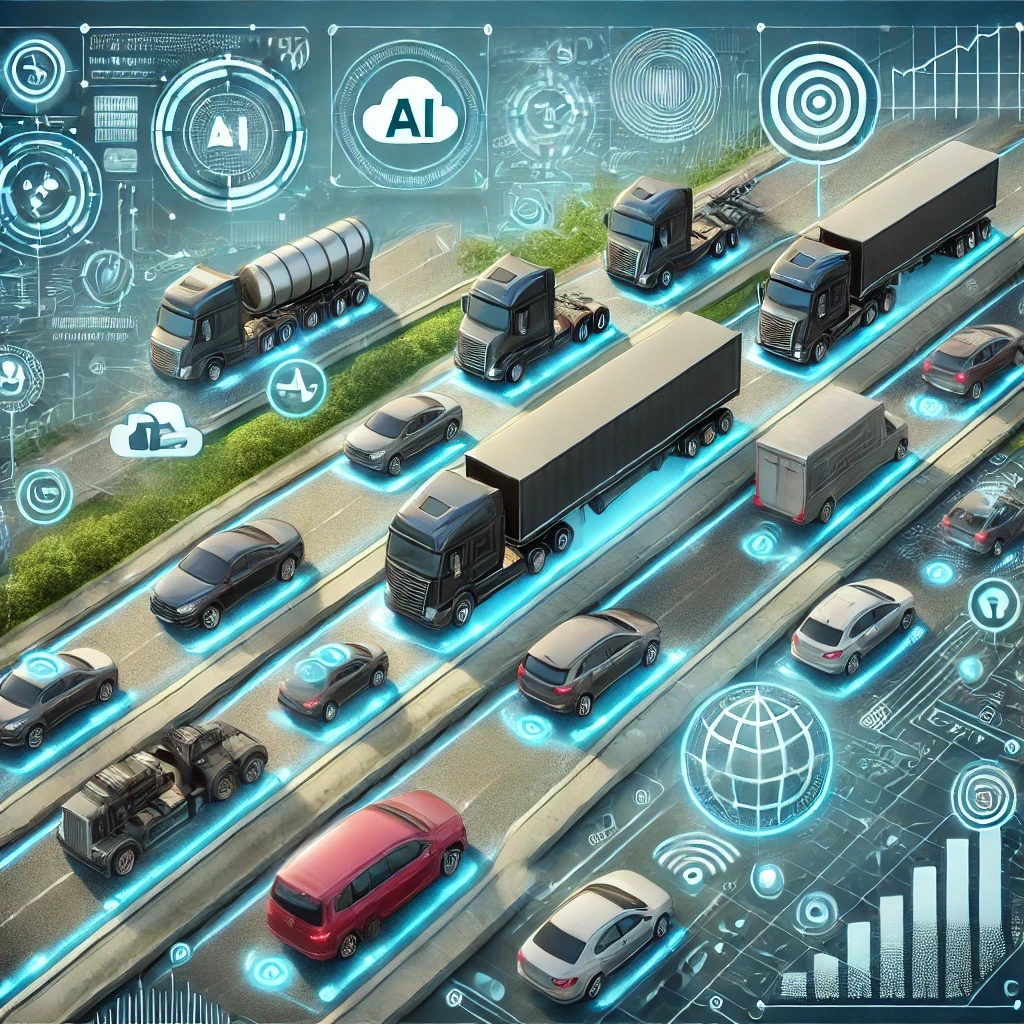
Top AI Trends for the Repair & Maintenance Industry in 2025
The repair and maintenance industry is undergoing a major transformation, driven by AI-powered automation, predictive analytics and real-time monitoring. Traditional maintenance methods, which relied on scheduled servicing and manual inspections, are being replaced by smart, data-driven solutions that improve efficiency, reduce costs and enhance safety.
In 2025, key AI trends — predictive maintenance, computer vision inspections, robotics, IoT connectivity and augmented reality training — are helping businesses anticipate failures before they happen, automate routine tasks and optimize resource allocation. By integrating AI-driven object detection, OCR and IoT-powered analytics, companies can minimize downtime, extend equipment lifespan and reduce operational risks.
While off-the-shelf AI APIs provide quick solutions for enhancing maintenance processes, custom AI solutions offer even greater long-term benefits by tailoring automation to industry-specific needs. Companies that embrace AI today will future-proof their operations, ensuring sustainability, profitability and a competitive edge in the years ahead. The time to innovate is now.

Top AI Trends in the Solar Energy Industry for 2025
The solar energy industry is rapidly evolving and artificial intelligence (AI) is playing a key role in shaping its future. In 2025, AI-powered technologies will drive efficiency, reduce maintenance costs and optimize energy production. From predictive maintenance that detects performance issues before they cause energy losses to drone-powered image analysis that automates solar panel inspections, AI is making solar farms smarter and more cost-effective.
Advanced forecasting tools powered by AI improve energy output predictions, ensuring better grid stability and storage management. Deep learning algorithms provide smart data insights, helping operators identify inefficiencies and maximize performance. For companies with unique operational needs, custom AI solutions offer tailored approaches to long-term cost savings and competitive advantages.
As AI technology continues to evolve, solar energy providers must embrace innovation to stay ahead. Whether by leveraging ready-to-use AI APIs or investing in fully customized solutions, integrating AI into solar operations is the key to greater efficiency, profitability and sustainability in the years to come.

7 Key AI Trends Transforming the Energy Industry in 2025
AI is transforming the energy industry, driving efficiency, sustainability and profitability like never before. In 2025, seven key AI trends — including predictive maintenance, demand forecasting, drone-based inspections and AI-driven energy trading — are reshaping how companies manage infrastructure, optimize power distribution and reduce carbon footprints. Businesses that embrace AI-powered solutions now will gain a competitive edge, reducing operational costs while ensuring long-term growth. As AI technology advances, its role in automating processes, enhancing decision-making and promoting clean energy initiatives will only expand. The future of energy is smart, data-driven and AI-powered — are you ready to be part of it?

Top AI Trends in the Oil and Gas Industry for 2025
As the oil and gas industry faces increasing pressure to improve efficiency, reduce costs and meet environmental regulations, AI-powered technologies are transforming operations at every level. From predictive maintenance that prevents equipment failures to computer vision systems that enhance worker safety and environmental monitoring, artificial intelligence is reshaping how energy companies explore, extract and manage resources.
In 2025 and beyond, the integration of AI-driven analytics, automation and real-time monitoring will be key to staying competitive in a rapidly evolving energy landscape. Companies that strategically adopt AI solutions will not only reduce operational risks and optimize production but also gain a significant advantage in sustainability and cost-efficiency.
The future belongs to those who embrace AI-driven innovation — leveraging intelligent automation, data-driven decision-making, and custom AI solutions to unlock higher profitability, improved safety and long-term resilience in the oil and gas sector.

Top AI Trends in Manufacturing for 2025: Industry 4.0 Insights
The manufacturing industry is evolving rapidly, with artificial intelligence (AI) transforming production processes, quality control and supply chain management. In 2025, smart factories will rely on AI-driven computer vision, predictive maintenance and robotics to reduce costs, improve efficiency and enhance product quality.
From real-time defect detection using AI-powered image recognition to predicting machinery failures before they happen, AI is making manufacturing smarter, faster, and more reliable. AI-driven robotics and automation are reshaping factory floors, enabling seamless collaboration between humans and machines. At the same time, custom AI solutions are helping businesses optimize workflows, ensuring long-term cost savings and a competitive edge.
As the industry moves forward, emerging technologies like edge computing, 5G and advanced machine learning will further revolutionize manufacturing, making operations more adaptive and data-driven. Investing in AI now is no longer optional — it’s the key to staying ahead in an increasingly competitive and automated world.

Top AI Trends for the Automotive Industry in 2025
Artificial intelligence is transforming the automotive industry, revolutionizing everything from self-driving advancements and predictive maintenance to AI-powered manufacturing and personalized in-cabin experiences. In 2025, AI-driven innovations will redefine vehicle safety, efficiency and user experience, making automation and smart decision-making integral to modern mobility. Companies that embrace AI-powered automation, computer vision and intelligent supply chain management will gain a competitive edge, reducing costs and improving long-term sustainability. As AI continues to reshape the automotive sector, businesses must act now to stay ahead in this rapidly evolving landscape.

How AI-Powered Image Recognition Improves Fleet Management in Transportation
AI-powered image recognition is revolutionizing fleet management by enhancing vehicle monitoring, improving driver safety, streamlining documentation, and optimizing route planning. Through automated visual inspections, real-time asset tracking, and predictive maintenance, fleet operators can reduce costs, increase efficiency, and improve sustainability. As the future of transportation evolves with innovations in AI, fleets will become smarter, safer, and more autonomous, positioning AI image recognition as a vital technology for managing modern logistics.

Aerospace Safety and Maintenance: The Role of AI-Powered Image Processing APIs
The aerospace industry is undergoing a transformation, with AI-powered image processing technologies revolutionizing safety and maintenance practices. By automating tasks such as defect detection, predictive maintenance, and structural health monitoring, AI is enhancing the accuracy and efficiency of inspections while reducing downtime and operational costs. As the industry adopts AI-driven solutions, the future of aerospace safety is becoming more proactive and data-driven, ensuring long-term durability, reliability, and compliance. Discover how AI-powered technologies are reshaping the aerospace sector, driving it towards a safer, more efficient future.
